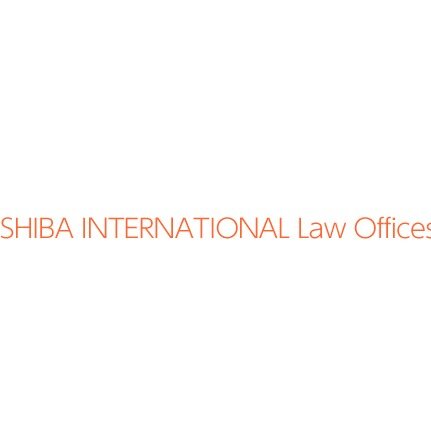Best Sanctions & Export Controls Lawyers in Tokyo
Share your needs with us, get contacted by law firms.
Free. Takes 2 min.
List of the best lawyers in Tokyo, Japan
About Sanctions & Export Controls Law in Tokyo, Japan
Sanctions and export controls law in Tokyo, Japan, is a rapidly evolving area that deals with the regulation of sensitive goods, technologies, and financial transactions for reasons such as national security, international peace, and compliance with global agreements. These laws are meant to prevent the proliferation of weapons, ensure that exports do not support terrorism or conflict, and enforce international obligations like United Nations resolutions. Companies and individuals in Tokyo must navigate both domestic regulations and international requirements, especially as Japan continues to align with global trade and security practices.
Why You May Need a Lawyer
Seeking legal advice on sanctions and export controls is essential in several situations. If your business is exporting goods, technology, or services from Japan, or if you are involved in financial transactions with foreign entities, you may need guidance to stay compliant. You might also require legal help if you face an investigation, enforcement action, or wish to apply for export licenses. Common scenarios include mergers and acquisitions involving sensitive technology, shipping goods to countries subject to sanctions, or responding to government inquiries. A specialist lawyer can help interpret complex regulations and protect your business from legal and reputational risks.
Local Laws Overview
Key Japanese laws governing sanctions and export controls include the Foreign Exchange and Foreign Trade Act (FEFTA) and its associated cabinet orders and ministerial ordinances. FEFTA empowers the government to control exports, regulate technology transfers, and impose economic sanctions in line with domestic and international policy.
Exporters must perform due diligence to avoid shipping restricted items to prohibited destinations or individuals. Japan also imposes sanctions that can include asset freezes and restrictions on providing financial services to designated persons or organizations. Additionally, compliance with international frameworks, such as those directed by the United Nations Security Council, is enforced locally. Failure to comply can result in severe penalties, including fines, license revocation, and imprisonment.
Frequently Asked Questions
What are sanctions and export controls in Japan?
Sanctions restrict trade or financial dealings with specific countries, groups, or individuals. Export controls regulate the transfer, sale, or shipping of certain goods, technology, and information for security and policy reasons.
Who enforces sanctions and export controls in Tokyo?
Japanese authorities such as the Ministry of Economy, Trade and Industry (METI), the Ministry of Finance, and the Ministry of Foreign Affairs enforce these laws and oversee investigations and licensing.
Do I need a license to export goods from Japan?
Yes, for many controlled goods, technology, and software, you need to apply for and receive export licenses from the relevant Japanese authorities before proceeding with any transfer or shipment.
Which items are subject to export control?
Controlled items include advanced electronics, dual-use goods, military equipment, sensitive chemicals, and certain software or technical data. The control list is maintained by METI and updated regularly.
Can I do business with individuals or companies in sanctioned countries?
Generally, you are prohibited from engaging in business or trade with individuals or companies in sanctioned countries unless you receive specific government approval or the activity falls under an exemption.
What are the penalties for violating sanctions or export controls?
Penalties for violations can include large fines, cancellation of export privileges, and criminal prosecution that may lead to imprisonment. Companies may also face significant reputational harm.
Am I responsible for customers’ actions after exporting goods?
Yes, Japanese law may hold exporters responsible if they knew or should have known that their products would be diverted to a prohibited use or recipient.
How often do export and sanctions regulations change?
Regulations can change frequently in response to international developments. It is important to regularly monitor official updates or consult legal professionals for current requirements.
Do sanctions and export controls apply to intangible transfers like email or cloud services?
Yes, non-physical transfers such as sharing controlled technology via email or cloud services are subject to the same regulations as physical exports.
How do I stay compliant with Japanese sanctions and export controls?
Implement stricter internal compliance programs, regularly train staff, perform due diligence, consult the control lists, and seek legal advice when necessary to ensure compliance.
Additional Resources
- Ministry of Economy, Trade and Industry (METI): Provides regulatory guidance and export control lists.
- Ministry of Foreign Affairs (MOFA): Issues updates on sanctions implemented by the Japanese government.
- Japan External Trade Organization (JETRO): Offers practical information and resources for exporters.
- Local bar associations and legal aid organizations: Can help you find qualified sanctions and export control lawyers.
Next Steps
If you have questions or concerns about sanctions and export controls in Tokyo, begin by gathering all relevant information about your activities, products, or transactions. Review official resources and consider initial consultation with a legal specialist in this field. Prepare a list of your compliance questions and business objectives. Reach out to a reputable law firm or a certified attorney with experience in export controls and sanctions. Timely legal advice can help you avoid costly mistakes, protect your business, and ensure ongoing compliance with Japanese and international law.
Lawzana helps you find the best lawyers and law firms in Tokyo through a curated and pre-screened list of qualified legal professionals. Our platform offers rankings and detailed profiles of attorneys and law firms, allowing you to compare based on practice areas, including Sanctions & Export Controls, experience, and client feedback.
Each profile includes a description of the firm's areas of practice, client reviews, team members and partners, year of establishment, spoken languages, office locations, contact information, social media presence, and any published articles or resources. Most firms on our platform speak English and are experienced in both local and international legal matters.
Get a quote from top-rated law firms in Tokyo, Japan — quickly, securely, and without unnecessary hassle.
Disclaimer:
The information provided on this page is for general informational purposes only and does not constitute legal advice. While we strive to ensure the accuracy and relevance of the content, legal information may change over time, and interpretations of the law can vary. You should always consult with a qualified legal professional for advice specific to your situation.
We disclaim all liability for actions taken or not taken based on the content of this page. If you believe any information is incorrect or outdated, please contact us, and we will review and update it where appropriate.













